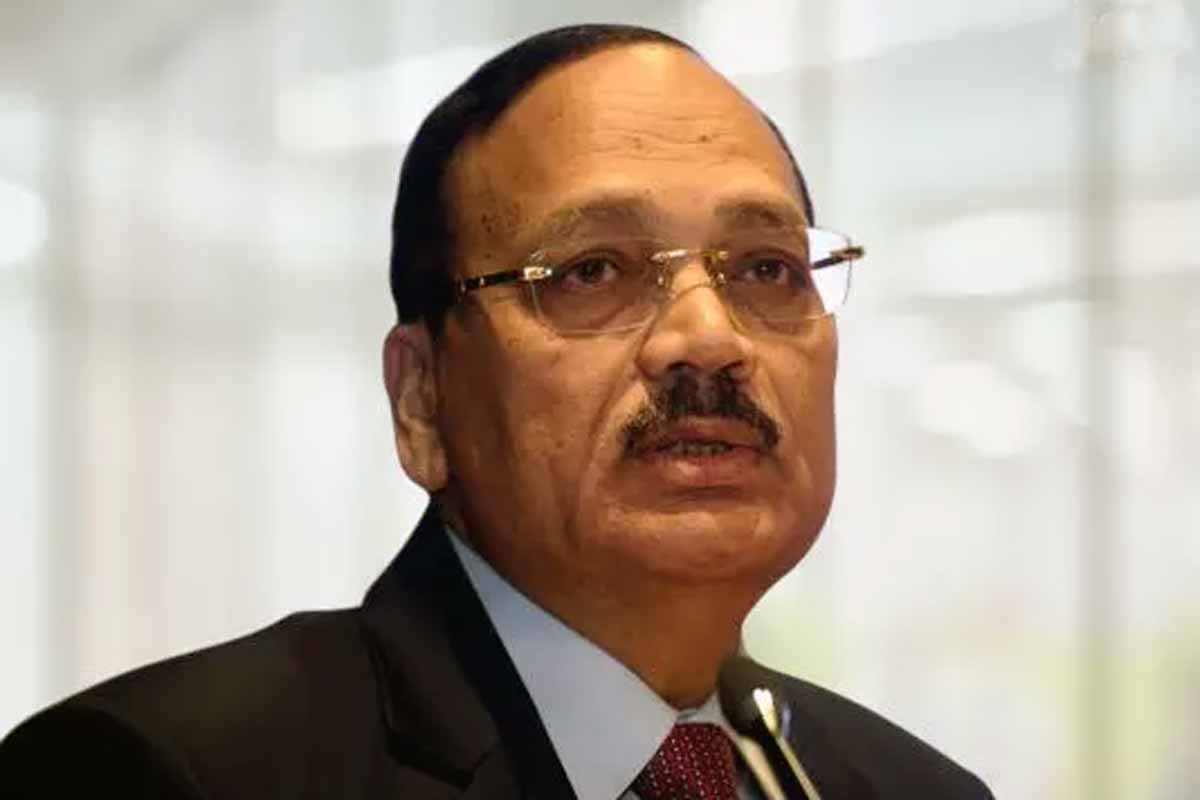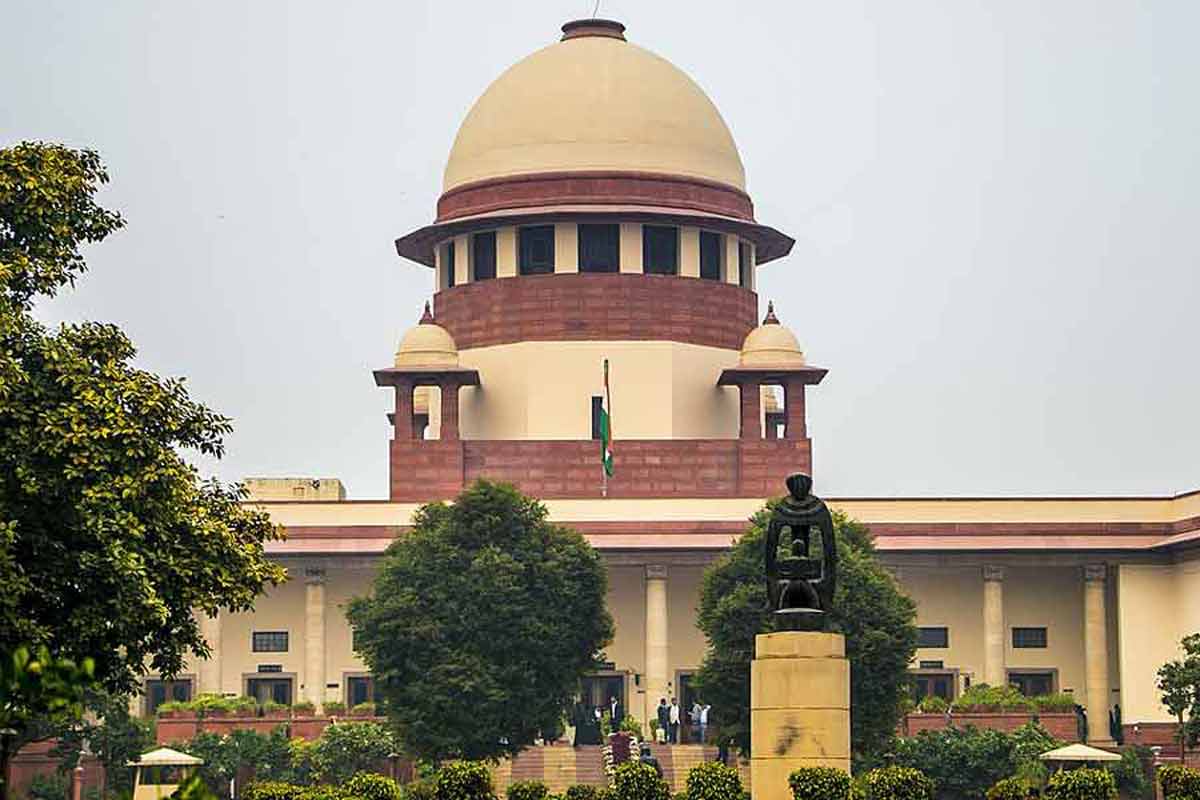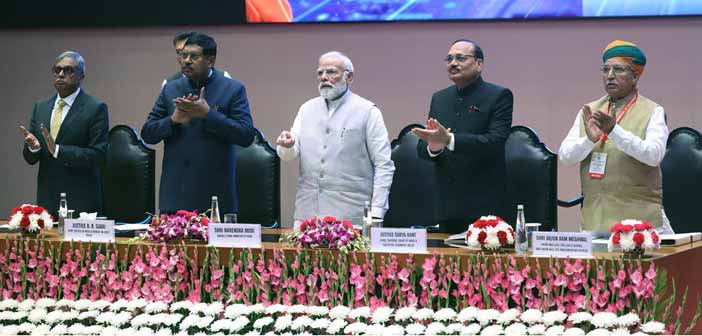India’s Arbitration Ascendancy: A New Global Powerhouse Emerges: GOTHENBURG, SWEDEN – In a significant pronouncement that reverberated through the international legal community, Supreme Court Justice Surya Kant declared on Thursday that “The future of arbitration is not just international — it is also Indian.” Speaking at a pivotal roundtable in Gothenburg, Sweden, Justice Kant laid out a compelling vision for India’s burgeoning role as a global arbitration destination, signaling a transformative shift in the landscape of international dispute resolution.
Justice Kant delivered the keynote address at the event titled “Reimagining International Arbitration: India’s Emergence as a Global Arbitration Destination.” His remarks underscored India’s strategic positioning to become a formidable contender among the next generation of preferred arbitral seats, challenging the long-held dominance of traditional centers like London and Singapore. He attributed this rise to a trifecta of factors: robust legislative reforms, unwavering judicial support, and dynamic institutional development.
READ: CJI BR Gavai Cautions Law Students Against Foreign LLMs by Taking Heavy Loans
A Foundation of Reform and Judicial Backing
Central to India’s arbitration evolution, Justice Kant explained, is the 1996 Arbitration and Conciliation Act. Modeled on the UNCITRAL Model Law, this landmark legislation marked a profound shift, embedding principles of party autonomy, procedural efficiency, and minimal judicial interference. Subsequent amendments in 2015 and 2021 have further refined the process, accelerating arbitrator appointments and narrowing the grounds for challenging awards, thereby enhancing the predictability and efficiency of arbitral proceedings.
The Indian judiciary, particularly the Supreme Court, has been a steadfast ally in this journey. Justice Kant highlighted key decisions in cases such as Bhaven Construction and PASL Wind Solutions v. G.E. Power, which have reinforced the pro-arbitration stance of the courts. He also cited a crucial 7-judge bench decision upholding unstamped arbitration agreements and the Court’s consistent affirmation of the Group of Companies doctrine, all of which contribute to a more arbitration-friendly environment. Furthermore, Justice Kant lauded the Court’s efforts to curb “threshold litigation” arising from vaguely drafted arbitration clauses, citing South Delhi Municipal Corporation of Delhi v. SMS Limited as an example of the judiciary’s commitment to upholding the integrity of the arbitral process.
READ: Kanwar Yatra: Plea in Supreme Court Challenges UP Government’s QR Code Mandate for Eateries
Institutional Growth and Global Recognition
India’s arbitration ecosystem is also benefiting from the proliferation of arbitral institutions. Justice Kant pointed to the growing number of such bodies, including ICADR, ICA, DAC, and MCIA, which are actively promoting institutional arbitration within the country. He noted a discernible rise in international arbitration cases involving Indian parties, a trend further bolstered by the establishment of the new International Maritime Arbitration Centre at GIFT City.
A testament to India’s growing prominence is the significant involvement of Indian parties in the Singapore International Arbitration Centre (SIAC), where they constitute a substantial portion of users. Moreover, Justice Kant revealed that in 2024, 15% of arbitrators appointed by SIAC were of Indian origin, signaling the global recognition and increasing leadership roles of Indian arbitration professionals.
READ: NEET-UG 2025 Re-Test for Candidates Affected by Power Outage in Madhya Pradesh: High Court
Safeguards for Investors and the Digital Frontier
For foreign investors, India offers robust legal safeguards, including constitutional provisions like Articles 32 and 226. Justice Kant emphasized India’s proactive engagement in bilateral investment treaties, citing the 2024 India-UAE BIT as a prime example of the nation’s expanding influence in investor-state dispute resolution.
In an increasingly interconnected world, India is also at the forefront of online dispute resolution (ODR). Justice Kant detailed how legislative frameworks, including the Arbitration and Conciliation Act, the Information Technology Act, and the Bharatiya Sakshya Adhiniyam, 2023, provide the legal and technological scaffolding for ODR mechanisms. He underscored the critical role of ODR in reducing costs and logistical burdens associated with international travel, making cross-border dispute resolution more accessible and inclusive. Executive initiatives, such as the RBI’s ODR policy, the MSME Ministry’s SAMADHAAN portal, and the Department of Legal Affairs’ efforts to map ODR service providers, further demonstrate India’s commitment to this digital transformation.
READ: DRDO Transfers Latest Defence Tech to Industry Partners
Comparative Advantages and Future Challenges
Justice Kant outlined several comparative advantages that position India favorably in the global arbitration arena. These include lower costs, a progressive fee structure under the Fourth Schedule of the 1996 Act, a vast pool of English-speaking common law-trained professionals, growing capacity for translation support, and India’s strategic geographic location.
However, he also candidly addressed areas requiring further attention, particularly enforcement-related issues and the need to build institutional capacity to meet global standards. He proposed strategic investments in legal education, practitioner training, and public-private partnerships to strengthen India’s arbitral institutions.
Justice Kant envisioned India as a facilitator of regional arbitration partnerships, uniquely poised to manage high-value disputes in critical sectors like infrastructure, energy, and technology. He urged continued harmonization with international norms, including UNCITRAL standards and ICSID mechanisms, asserting that such alignment would ensure India not only competes but leads with a model that is both globally credible and contextually responsive. “The future of arbitration in India rests not only in reform but in reimagination,” he stated emphatically.
READ: BCAS Revokes Security Clearance of Turkey’s Çelebi Aviation
Beyond Litigation: The Rise of Mediation
Beyond arbitration, Justice Kant also highlighted India’s progressive approach to mediation. He stressed the importance of treating arbitration and mediation as independent dispute resolution mechanisms, rather than mere alternatives to litigation. He referenced India’s “Mediation for the Nation” campaign as a clear signal of the country’s shift towards party-driven resolution processes.
Concluding his visionary address, Justice Kant affirmed, “India is no longer merely attempting to catch up with established arbitral centres — it is actively reimagining what arbitration and mediation can and should look like in a dynamic, multipolar legal order.” He expressed confidence that with sustained momentum, thoughtful engagement, and continued innovation, India will not only serve as a capable venue for arbitration but will also play a pivotal role in shaping its very future.
READ: HAL’s CATS Warrior UCAV Successfully Completes Engine Ground Run













